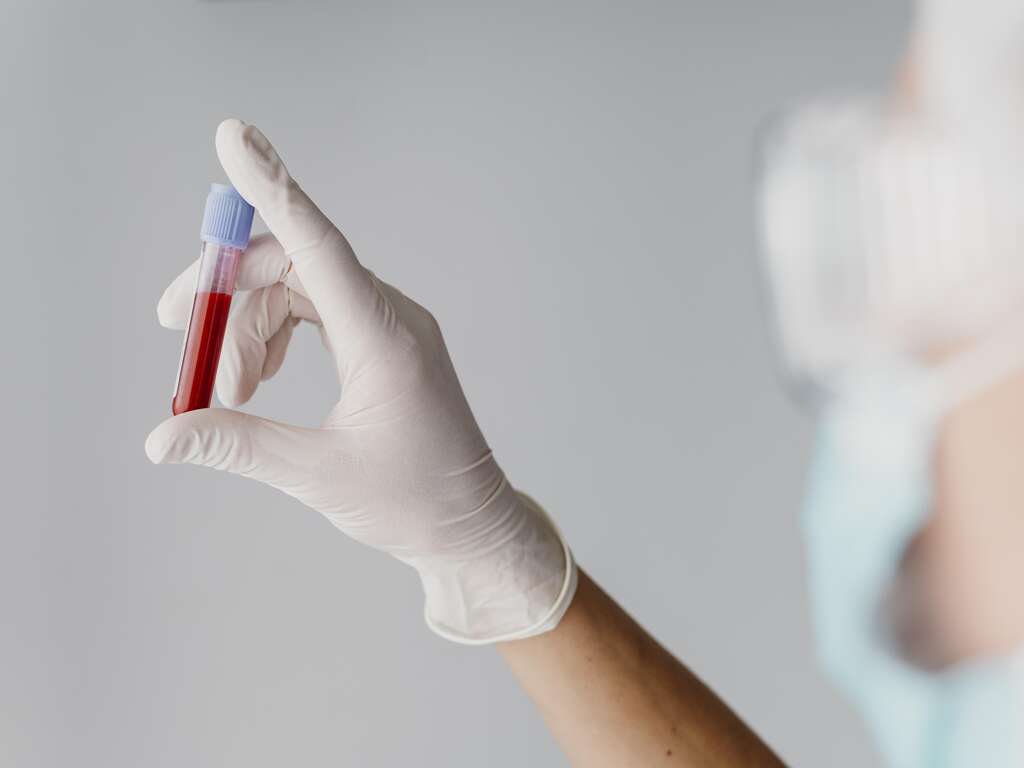Alcohol Addiction
Ready to Take the Next Step?
We are Ready to Help, Call Now!
Turning Point of Tampa has helped thousands find recovery. As an in-network facility, we are able and committed to helping you find the life you deserve.
Alcohol is one of the most popular drugs nationwide. According to a survey from the National Institute on Alcohol Abuse and Alcoholism (NIAAA), 14.1 million adults ages 18 and older had an alcohol use disorder (AUD) in 2019.
While having a few drinks occasionally is not cause for concern, moderate drinking and binge drinking behaviors can lead to alcohol misuse, alcohol abuse, or alcohol addiction.
How Drinking Alcohol Affects the Brain and Body

Alcohol affects the central nervous system as a depressant, resulting in a decrease in activity and inhibitions. Even a low level of alcohol within the body slows reactions. Alcohol impairs concentration and judgment and can lead to intoxication, and in excessive amounts, poisoning.
Alcohol irritates the gastrointestinal tract, causing an erosion of the stomach lining, resulting in nausea and vomiting. Long-term use of alcohol can lead to liver disease (hepatic cirrhosis). Alcohol can also compromise the cardiovascular system and lead to sexual dysfunction. Alcohol consumption during pregnancy can cause problems for the developing fetus known as Fetal Alcohol Syndrome.
Drinkers experience changes in tolerance as alcohol dependence develops, often causing memory lapses related to drinking episodes.
What Causes Alcohol Addiction?
Addiction is the result of a multi-step process that begins with chronic consumption of an addictive substance. Over time, the brain becomes accustomed to the presence of that substance in the body, meaning the individual must take more of the same substance to feel its effects.
In the case of alcohol, this means that chronic drinkers must consume alcohol and drink more heavily to feel intoxicated than they did when they first began drinking. This is a condition known as tolerance, and it is common with all addictive substances, including prescription medications.
If individuals continue consuming alcohol, they can eventually reach the point of alcohol addiction and develop an alcohol use disorder. Currently, they are willing to undergo significant risks to their wellbeing and the wellbeing of others to continue drinking.
Individuals with substance use disorders including alcohol addiction are often willing to damage their careers, personal and professional relationships, and even harm themselves and others to fulfill their need for their drinking habits. This is driven by the brain’s adaptation to the drug, which often includes producing fewer neurotransmitter chemicals and overriding areas of the brain responsible for decision making and impulse control.
Signs and Symptoms of an Alcohol Use Disorder (AUD)

Signs and symptoms of alcohol addiction may include:
- Tolerance to the effects of alcohol
- Need for daily or frequent use of alcohol
- Lack of control over drinking/intake
- Solitary drinking
- Making excuses to drink
- Episodes of memory loss associated with alcohol use
- Episodes of violence associated with drinking
- Behavioral problems
- Absenteeism
- Shaking in the morning
- Neglect of appearance or personal needs
- Redness and enlarged capillaries in the face (especially the nose)
- Difficulty focusing
- Availability and consumption of alcohol use becomes the focus of social activities
- Changes in peer-group associations
- Tremors
- Rapid heart rate
- Unexplained mood swings
- Hostility when confronted about drinking behavior
Everyone’s experience of addiction is different, so not everyone suffering from alcohol addiction will display all these symptoms at once. Nonetheless, if they show signs of habitual behavior patterns around alcohol problems, they are likely good candidates for a treatment facility.
Long-Term Affects Alcohol Abuse

Long-term alcohol use can also contribute to lasting negative health consequences. These can include risk of death due to drunk driving and other higher risk-taking behaviors, as well as an increased likelihood of risk factors such as fatal falls, fires, drownings, and violence. Alcohol itself contributes to bodily harm, including:
- Increased risk of stroke
- High blood pressure
- Damage to the liver
- Increased risk of hepatitis
- Diseases including cirrhosis, fibrosis, and pancreatitis
- Increased risk of damage to the heart (cardiomyopathy)
- Increased risk of cancer
- Increased risk of pneumonia and other contagious diseases
You can read more about alcohol’s long-term effects on the human body in this National Institute on Alcohol Abuse and Alcoholism NIAAA fact sheet.
Risk of Alcohol Withdrawal
As with other drugs, after frequent drinking a person may experience uncomfortable withdrawal symptoms when they cut back or attempt to stop drinking. This can lead to a variety of symptoms ranging from moderate to severe and life-threatening.
Because alcohol affects the nervous system, its absence in the body can lead to withdrawal symptoms including:
- Confusion
- Moodiness
- Restlessness
- Nausea
- Anxiety
- Depression
- Body or muscle aches
- Fever
- Insomnia or disrupted sleep
- Hand or muscle tremors
- High pulse rate
Severe alcohol abuse causes withdrawal symptoms when excessive drinking comes to a halt and can trigger a condition known as delirium tremens (or DTs) which can lead to hallucinations, seizures, stroke, or heart attack.
In the case of heavy drinkers, withdrawal can occur as soon as 5-10 hours after their last drink, with most symptoms subsiding within 5-7 days. Because alcohol withdrawal can lead to life-threatening complications, detoxification should only take place under medical supervision.
Risk of Alcohol Overdose

Because alcohol is a depressant that slows down the brain and body, consuming too much alcohol can cause the body to overdose, leading to the heart, lungs, and other organs to stop working.
Signs of an alcohol overdose include:
- Difficulty understanding or speaking
- Dizziness or difficulty standing
- Loss of consciousness
- Nausea and vomiting
- Difficulty breathing
- Lowered heart rate
- Seizure
Overdoses from Alcohol Use and Substance Abuse
Overdoses are particularly common when individuals mix alcohol with other addictive drugs such as benzodiazepines (Xanax, Valium, Klonopin) or opioids (OxyContin, fentanyl) that also slow down the central nervous system. The interaction between these drugs can be highly dangerous and even fatal.
If you see anyone exhibiting the signs of an alcohol overdose, contact emergency medical services immediately by calling 911.
Dual Diagnosis and Alcohol Use Disorder
Many individuals with an alcohol use disorder also struggle with a mental health disorder. A co-occurring dual diagnosis such as depression, anxiety disorders, bipolar disorder, post-traumatic stress disorder (PTSD), or eating disorders commonly occur in conjunction with an alcohol use disorder and alcohol addiction.
In some cases, individuals may turn to drinking alcohol as a coping mechanism when dealing with mental health challenges. In other cases, addictive behaviors may lead to an increased likelihood of mental health complications.
Either way, it is critical that individuals with co-occurring disorders (also known as dual diagnosis or comorbidity) seek help from a reputable alcohol treatment program that can assist them with both disorders at the same time. For example, at Turning Point of Tampa, we have a specialized track for individuals struggling with alcohol addiction and eating disorders simultaneously.
Alcohol Addiction Treatment
Veterans Addiction Assistance
Treatment for Veterans & Active Duty Service Members

Preferred Provider of The Community Care Network

